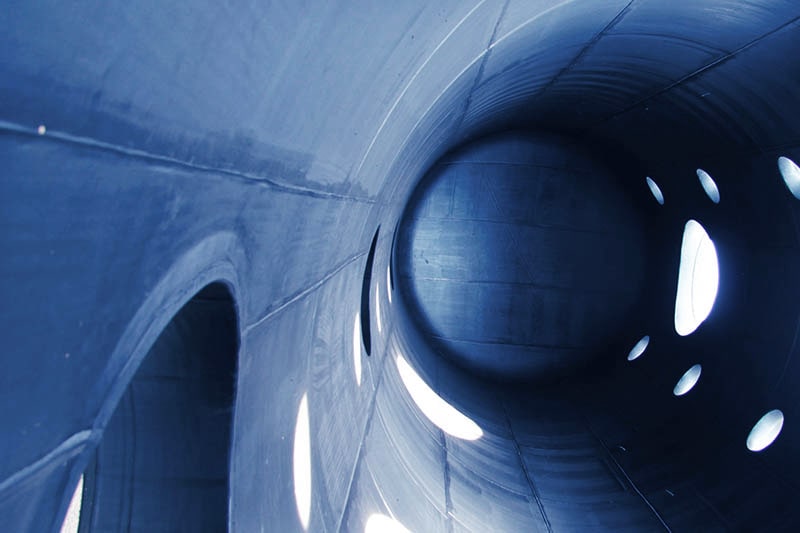Rubber Lining

https://linings.steuler.de/en/products/rubber-linings.html
Our rubber linings provide effective protection for steel and concrete components against chemical and mechanical attack. Depending on the medium and temperature, we use materials based on natural rubber, halobutyl rubbers, chloroprene and styrene-butadiene rubbers.
Typically, our rubber linings are used at temperatures up to approx. 120°C. A unique feature is our KERABUTYL HT, which extends the application range of rubber linings up to 150°C.
Rubber linings offer
- a high chemical resistance to a wide range of different media
- a high flexibility, which allows use even with movement in the substrate
- a high resistance to abrasive loads
- a high resistance against diffusion
Depending on the rubber lining used, even organic contaminants are unproblematic. As a full-service supplier, we can offer the optimum quality for every application, every time window and every installation situation. For our rubber sheets, we not only have extensive internal tests to assess their chemical resistance, but also many years of experience in application and various external tests, such as technical approvals or confirmation of suitability in the potable water sector.
ON-SITE RUBBER LININGS
Our on-site rubber lining systems are the means of choice when the application of rubbing lining is required directly on-site at the construction site or at our customer's plant. They are used, for example, when vessels are too large and heavy for transport or vulcanization would be technically impossible or too time-consuming. For large or built-in vessels, we can draw on a range of rubber linings that can be vulcanized on-site without the need for an autoclave. These rubber linings achieve similar properties to autoclave vulcanized materials without the need to transport the vessels to be lined. If on-site vulcanization is not possible, self-vulcanizing grades that vulcanize even at ambient temperature can be used.
Alternatively, pre-vulcanized grades can be used, which are ready for use just a few hours after bonding. Here, the focus is on easy transport of the sheets already vulcanized at the workshop, extremely safe processing with our new KERATEX adhesive, and fast commissioning.
WORKSHOP RUBBER LININGS
For transportable components such as smaller tanks, pipelines and filter plates or mobile units such as transport vessels and ISO tank containers, rubber lining at the workshop is an option. Thanks to the use of unvulcanized and thus easy-to-process rubber sheets, even highly complex components such as filter plates or fans can be lined without any problems. The final vulcanization in the autoclave leads to optimum adhesion in the seams and between rubber and steel.
Our materials for workshop rubber linings are optimized for easy application in combination with maximum chemical and thermal resistance:
From conductive hard rubber linings with high tolerance to organic contaminants even at temperatures above 100°C to soft rubber linings for the alternating transport of a wide variety of media such as waste acids, mixed acids, chlorine bleaching lyes, and rubber linings for pipes subject to high abrasive loads.
In our portfolio you will find the right system for every application.
REPAIR SYSTEMS
Even the best rubber lining can be damaged at some point. Minor damage caused, for example, during the cleaning of vessels or the installation and removal of scaffolding or built-in parts can be quickly and easily repaired with the help of our repair mortars in order to maintain operations. Depending on chemical and thermal load, these mortars can serve as a permanent repair or at least provide corrosion protection until the next scheduled period of downtime and repair with the original material.
Sorry, there is no product in this collection
